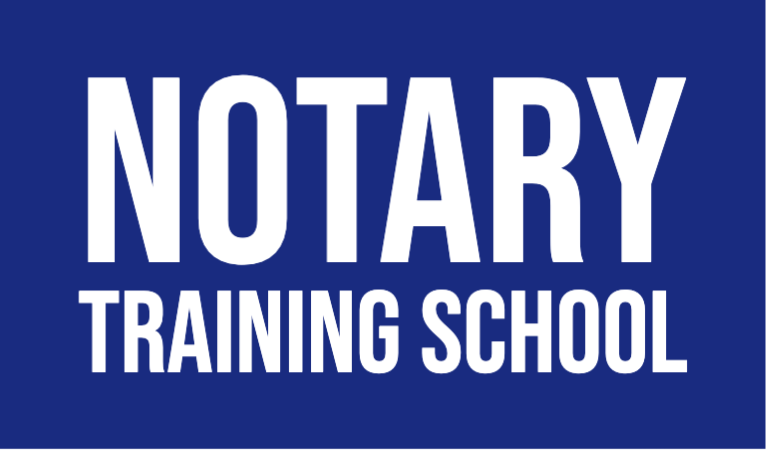Legal Insights: When and How a Notary Can Act as a Witness

The role of a notary public is vital in ensuring the authenticity and legality of important documents. Notaries are often asked to serve dual roles, including acting as witnesses during the signing of these documents. Understanding the legalities surrounding this dual responsibility is crucial for notaries to perform their duties effectively and ethically. In this article, we will explore whether a notary can act as a witness, the regulations across different states, and best practices for handling these dual roles.
Table of Contents
Understanding the Role of a Notary Public

Definition and Primary Duties
A notary public is an official appointed by the state to serve as an impartial witness in the signing of important documents. The primary duties of a notary include verifying the identity of signers, witnessing the signing of documents, and administering oaths when required. Notarial acts play a crucial role in preventing fraud and ensuring the integrity of various transactions, ranging from real estate deals to legal affidavits.
Importance of Notarial Acts
Notarial acts are essential in maintaining the trustworthiness of legal documents. They ensure that the signatures are authentic and that the signers are acting willingly and are competent to do so. This process helps to prevent forgery, coercion, and fraud, thereby upholding the integrity of legal and financial transactions.
Responsibilities and Ethical Considerations
The responsibilities of a notary are guided by state laws and regulations, which outline the proper conduct and ethical considerations required in their duties. Notaries must adhere to these regulations to maintain the trust and reliability associated with their role. This includes keeping accurate records, ensuring the voluntary nature of signatures, and avoiding any conflict of interest. Notaries are also expected to remain impartial and unbiased, ensuring that their personal interests do not interfere with their professional duties.
The Legal Definition of a Witness

What Constitutes a Witness
In legal terms, a witness is someone who observes the signing of a document and attests to the authenticity of the signatures. Witnesses play a critical role in legal proceedings by providing testimony that the signers were indeed who they claimed to be and that they signed the document willingly. The presence of a witness adds an extra layer of security and credibility to the document.
Types of Documents Requiring Witnesses
Documents that commonly require witnesses include wills, deeds, and powers of attorney. These documents often involve significant legal and financial consequences, making the role of a witness crucial. Witnesses help to ensure that these documents are executed properly and that the signers are fully aware of their actions and the implications.
Responsibilities and Qualifications
The qualifications for witnesses can vary by state but generally include being of legal age and mentally competent. Witnesses must also be impartial and not have a vested interest in the document’s outcome. They should be able to testify in court, if necessary, about the circumstances of the signing and the authenticity of the signatures.
Can a Notary Act as a Witness?

State-Specific Regulations
The question of whether a notary can also act as a witness depends largely on state-specific regulations. In many states, notaries are permitted to serve as witnesses in addition to their notarial duties, provided there is no conflict of interest.
Rationale Behind Regulations
The rationale behind these regulations is to prevent conflicts of interest and ensure that notaries can perform their duties impartially. By adhering to state-specific regulations, notaries can maintain the trust and integrity associated with their role.
Situations Where a Notary Can Serve as a Witness
Common Scenarios
Notaries are often asked to act as witnesses in various scenarios, such as real estate transactions, the signing of medical documents, and the execution of legal affidavits. In these situations, the notary’s role as a witness can provide an additional layer of verification and trust.
Guidelines for Serving as a Witness
When serving as a witness, notaries should follow specific guidelines to maintain the integrity of the process. This includes verifying the identity of all signers, ensuring the documents are signed willingly, and recording the witnessing event accurately in their notary journal. It’s also crucial to avoid situations where their impartiality could be questioned.
Avoiding Conflicts of Interest
To avoid conflicts of interest, notaries should ensure that they have no personal or financial stake in the documents they are notarizing and witnessing. This helps to maintain their impartiality and uphold the trustworthiness of the notarization process.
Benefits of Notaries Serving as Witnesses
Efficiency in Document Signing
There are several benefits to having a notary also act as a witness. One significant advantage is the efficiency it brings to the document signing process. With a notary already present, there is no need to find an additional witness, streamlining the procedure. This can be particularly beneficial in high-volume settings where multiple documents need to be signed.
Enhanced Credibility
A notary’s involvement can enhance the credibility of the document. Notaries are trained to detect and prevent fraud, and their presence can deter fraudulent activities. This dual role can be particularly beneficial in high-stakes transactions, providing both legal assurance and peace of mind. The added layer of verification provided by a notary can help to ensure that the document is executed properly and that all parties understand its implications.
Simplifying Legal Processes
By serving as both a notary and a witness, the process is simplified, reducing the number of individuals involved and thereby decreasing the potential for errors or misunderstandings. This can help to expedite the signing process and ensure that documents are completed correctly and efficiently.
Challenges and Limitations

Potential Challenges
While there are benefits, there are also challenges and limitations to notaries acting as witnesses. One of the primary challenges is the potential for conflicts of interest. Notaries must ensure they remain impartial and do not have a vested interest in the documents they notarize and witness.
Legal and Ethical Limitations
Legal and ethical limitations also vary by state, requiring notaries to stay informed about their specific state’s regulations. For example, while California allows notaries to serve as witnesses on most documents, New York restricts notaries from witnessing wills. These varying regulations can create challenges for notaries who work in multiple states or handle interstate transactions.
Maintaining Accurate Records
Notaries must be vigilant in maintaining accurate records and following proper procedures to avoid any legal complications. This includes keeping detailed records of their notarizations and witness activities, as well as ensuring that all necessary steps are followed for each document they handle.
Best Practices for Notaries Acting as Witnesses
Understanding State Regulations
To effectively handle the dual responsibilities of a notary and witness, certain best practices should be followed. Notaries should start by thoroughly understanding their state’s regulations regarding acting as a witness. This knowledge will guide their actions and help avoid any legal pitfalls.
Maintaining Professionalism and Impartiality
Maintaining professionalism and impartiality is crucial. Notaries should always verify the identity of signers, ensure voluntary participation, and keep detailed records of the witnessing event. It’s also essential to communicate clearly with all parties involved, explaining the role and responsibilities of a notary as a witness.
Detailed Record-Keeping
Proper record-keeping is vital. Notaries should document each act of notarization and witnessing in their notary journal, noting the date, time, and nature of the document, as well as the identities of the signers. This helps to provide a clear and accurate record of their activities, which can be essential in the event of a legal dispute.
Clear Communication
Clear communication with all parties involved is essential. Notaries should explain their role and the importance of their impartiality, ensuring that all signers understand the process and the implications of their signatures. This can help to prevent misunderstandings and ensure that the document is executed properly.
Conclusion
In conclusion, notaries can often serve as witnesses, provided they adhere to state-specific regulations and maintain their impartiality. This dual role can streamline processes and enhance the credibility of documents. By following best practices and staying informed about legal requirements, notaries can effectively manage these responsibilities and provide valuable services to their clients. Remember, the key to success in these dual roles lies in professionalism, ethical conduct, and a thorough understanding of the legal landscape.






Responses